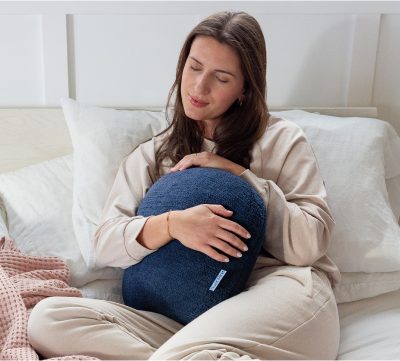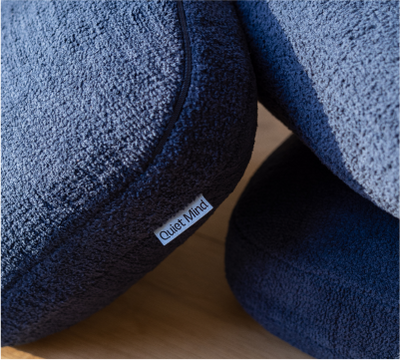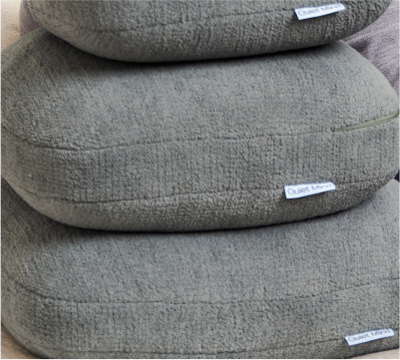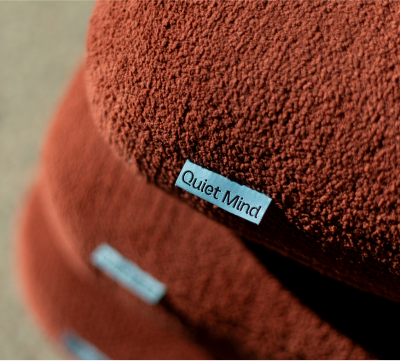Sometimes the mind forgets how to rest. When stress and anxiety feel like a constant hum in the background; clouding thoughts, interrupting sleep, and draining energy. It’s natural to wonder: Is there something gentle that can help?
Ashwagandha, a grounding herb used for centuries, is now gaining attention for its ability to reduce stress and anxiety in a way that aligns with how the body naturally finds balance. It may not be a cure; but for many, it can be a steadying companion.
What Is Ashwagandha and How Might It Help?
Ashwagandha, botanically known as Withania somnifera, is a cornerstone of Ayurvedic medicine. Traditionally used to promote vitality and restore emotional resilience, it’s classified as an adaptogen: a natural substance that helps the body adapt to physical, mental, and emotional stress.
The ashwagandha root extract contains compounds called withanolides, which are believed to play a key role in regulating the body’s response to tension. Modern research into the effect of ashwagandha focuses on how it influences cortisol levels, supports nervous system recovery, and restores the ability to return to calm after periods of arousal or overwhelm.
Today, ashwagandha supplements come in many forms; capsules, powders, and tinctures, all offering the same root-based benefits through different modes of delivery.
Ashwagandha and Anxiety: A Calming Connection
Anxiety and stress often originate in an overactive nervous system. The body remains stuck in high alert, even when there’s no direct threat. This constant state of vigilance wears down energy, mood, and clarity. The calming effect of ashwagandha lies in its ability to quiet this internal storm and help relax your body from anxiety.
Cortisol and the Stress Response
Cortisol is a hormone produced by the adrenal glands in response to stress. When it stays elevated for too long, it contributes to a range of anxiety and stress symptoms, restlessness, irritability, muscle tension, sleep disturbances, and brain fog.
Several studies suggest that ashwagandha may help lower cortisol levels by supporting the HPA axis (hypothalamic-pituitary-adrenal axis), which acts as the body’s internal stress thermostat. By restoring this balance, ashwagandha may help the body shift from survival mode into a more grounded, regulated state.
Adaptogens and Nervous System Support
Unlike quick-fix remedies that suppress symptoms, adaptogens like ashwagandha help the body rebuild resilience over time. This means fewer emotional highs and lows, steadier moods, and improved tolerance to daily challenges.
Many who use ashwagandha extract consistently report feeling more centered, not sedated, but supported. In this way, it becomes less about escaping anxiety and more about returning to your natural rhythm and finding ways to soothe anxiety naturally.
What Does the Research Say?
While ancient traditions have long used ashwagandha to reduce stress, modern science is now validating its therapeutic potential.
Clinical Studies and Observations
A growing body of peer-reviewed research has examined the effects of ashwagandha on stress, anxiety, and cortisol levels. For example:
A randomized, double-blind, placebo-controlled study published in the Indian Journal of Psychological Medicine found that adults taking 300 mg of full-spectrum ashwagandha root extract twice daily for 60 days experienced significantly reduced cortisol levels and lower scores on stress-assessment scales compared to the placebo group.
Participants reported:
- Lower perceived stress
- Improved sleep quality
- Enhanced mood stability over time
These findings are supported by additional clinical trials and meta-analyses showing that daily supplementation with 240–600 mg of ashwagandha can reduce anxiety symptoms and improve overall well-being in stressed adults.
Reviews published in journals like Nutrients and summaries by the NIH Office of Dietary Supplements reinforce its role as an effective adaptogen that supports HPA axis regulation and lowers cortisol naturally.
These results are promising, though more large-scale research is still needed.
Dosage and Duration
Most research studies use between 300 to 600 mg of standardized ashwagandha extract daily. Noticeable results often occur within two to eight weeks of consistent use, especially when paired with supportive habits like rest, mindful movement, and nourishing food.
The Broader Benefits: Beyond Anxiety Relief
Ashwagandha is often taken to help reduce stress and anxiety fast, but its support doesn’t stop there. When used consistently, it may gently strengthen multiple aspects of wellbeing; physically, mentally, and emotionally.
Emotional Balance
Ashwagandha may reduce emotional reactivity and support more stable moods, helping you feel less overwhelmed by everyday challenges.
Improved Sleep
Anxiety and sleep have a complex and often bidirectional relationship. Poor sleep can exacerbate anxiety, and anxiety can make it difficult to fall and stay asleep. By lowering cortisol, Ashwagandha may ease nighttime restlessness and support more restorative sleep, especially when anxiety interferes with rest.
Steady Energy and Focus
Rather than causing spikes or crashes, ashwagandha helps regulate energy levels. Many report better focus, less fatigue, and improved mental clarity.
Hormonal Support
Some research suggests that ashwagandha may support healthy thyroid function and balance stress-related hormone fluctuations.
Recovery and Resilience
Its adaptogenic qualities help the body recover from physical or emotional exertion, making it useful for those with fatigue or burnout.
Immune Modulation
Chronic stress can suppress immune function. Ashwagandha may help regulate immune responses, offering broader protection during periods of strain.
These layered benefits often build quietly over time; creating space not just for less anxiety, but for more clarity, vitality, and resilience.
How to Take Ashwagandha for Anxiety Support
There’s no one way to take ashwagandha, only the one that fits best with your lifestyle and body.
Capsules, Powders, or Tinctures?
Ashwagandha supplements are available in a variety of forms. Each offers unique advantages depending on your daily rhythm and personal needs:
-
Capsules: Ideal for simplicity, capsules provide a pre-measured dose with no taste. This option is helpful if you’re building a consistent morning or evening routine and prefer a no-fuss approach.
-
Powders: A more flexible option, powders can be stirred into warm milk, tea, or smoothies. Many people find the act of preparing a calming drink with ashwagandha powder becomes a grounding ritual in itself, especially in the evening.
- Tinctures: Alcohol- or glycerin-based tinctures may be absorbed more quickly by the body. They’re often chosen for their portability or when faster absorption is desired, such as during moments of increased tension.
Here’s a quick breakdown of ashwagandha capsules, powders, and tinctures.
|
Form |
Best For |
About |
|
Capsules |
Simplicity and routine |
Pre-measured, tasteless, ideal for consistent morning or evening use |
|
Powders |
Flexibility and ritual |
Can be added to warm milk, tea, or smoothies; great for grounding nighttime routines |
|
Tinctures |
Fast absorption and portability |
Absorbs quickly; useful during moments of tension or stress on the go |
Regardless of form, pairing ashwagandha with soothing daily practices like deep breathing, a weighted blanket or pillow, or a gentle bedtime routine can help deepen its impact on the nervous system over time.
Suggested Dosage and Timing
Most studies on ashwagandha root extract for anxiety support use daily doses ranging from 300 to 600 mg of a standardized extract. This amount has been associated with potential improvements in stress reduction, emotional balance, and sleep quality over several weeks of use.
When to Take It:
- Morning: May support mental clarity, emotional steadiness, and reduced daytime stress.
- Evening: Often preferred by those seeking help with falling asleep or unwinding at night.
- Split Dosing: Some choose to divide their dose half in the morning, half at night for balanced coverage throughout the day.
How Long Does Ashwagandha Take to Work?
Ashwagandha isn’t designed for immediate relief but it works by supporting the body’s long-term resilience to stress. While some people report feeling calmer within a few days, most clinical studies suggest that measurable improvements are typically seen between two to eight weeks of consistent use.
This gentle pacing is part of what makes ashwagandha extract different from fast-acting remedies. It helps regulate stress hormones, support nervous system health, and rebuild emotional steadiness over time.
For those living with chronic anxiety or stress-related fatigue, patience and daily use are essential. When used consistently, it becomes a powerful tool to help beat anxiety from the inside out.
To enhance the effects, consider combining ashwagandha with:
-
Mindfulness or breathwork.
-
Daily movement or stretching.
-
Consistent sleep-wake routines.
-
Sensory support, such as a scented weighted pillow or calming aromatherapy.
Together, these small habits reinforce ashwagandha’s role as a quiet, supportive part of your daily rhythm.
Is Ashwagandha Safe for Everyone?
Ashwagandha is generally well-tolerated when taken as directed. However, like all herbs, it isn’t suitable for everyone. It’s important to consider your unique health background before adding any new supplement to your routine.
When to Use Caution
Speak with a qualified healthcare provider before taking ashwagandha if you:
-
Are pregnant or breastfeeding.
-
Have an autoimmune condition (such as lupus, MS, or rheumatoid arthritis).
-
Are on thyroid medications (ashwagandha may affect thyroid hormone levels).
-
Are taking sedatives, anxiety medications, or antidepressants.
-
Are on immunosuppressant drugs or preparing for surgery.
- Have hormonal imbalances or a history of hormone-sensitive conditions.
While many people find ashwagandha beneficial, it may interact with certain medications or amplify their effects. Consulting your doctor helps ensure that you’re using it safely and in a way that supports your full health picture.
Final Thoughts: Can Ashwagandha Help With Anxiety?
Ashwagandha isn’t a quick fix and it’s not meant to be. But it may help soften the edges of anxious thinking, support your body’s natural stress response, and create space between overwhelm and calm. For many, it offers a steady hand when the nervous system forgets how to settle.
When used thoughtfully alongside practices like rest, movement, therapy, or sensory grounding; ashwagandha can become part of a deeper rhythm of care. Not to erase anxiety, but to meet it with more resilience and less reactivity.
Relief doesn’t always come in dramatic shifts. Sometimes, it’s subtle. Sometimes, it’s slow. And sometimes, it begins with a quiet root doing quiet work one day at a time.
About Quiet Mind
At Quiet Mind, we believe that emotional wellbeing begins with nervous system care. We create tools designed to support calm from the inside out gently, consistently, and without pressure to be perfect.
From our weighted pillows to our calming content, everything we offer is rooted in sensory awareness, slow living, and support that meets you where you are. No loud fixes. Just thoughtful tools to help you feel safe, steady, and more at home in your body.
Your mind deserves softness. We’re here to help you make space for it.
Frequently Asked Questions
What is ashwagandha and how does it help with anxiety?
Ashwagandha is an adaptogenic herb that helps the body regulate stress. It’s known to lower cortisol and support a calmer mood.
How long does it take for ashwagandha to start working?
Many people feel effects within two to eight weeks. Some notice improvements sooner, especially with consistent use.
What is the recommended dosage for anxiety support?
Most research suggests 300–500 mg of standardized root extract per day. Always consult your healthcare provider to personalize your dose.
Is ashwagandha safe for everyone?
It’s generally safe, but not recommended during pregnancy, for those with certain medical conditions, or when combined with specific medications.
Can I combine ashwagandha with other anxiety treatments?
Often yes, but only under medical guidance. It’s best to view it as part of a broader anxiety care plan.

















